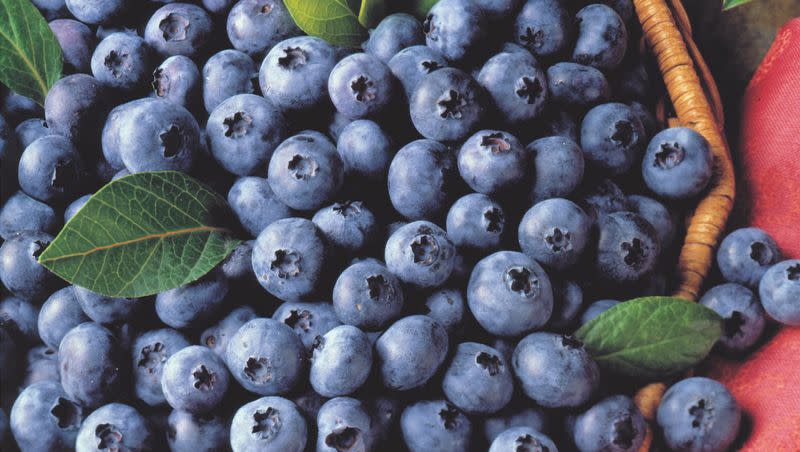5 foods that help calm anxiety and reduce depression

Foods such as blueberries and salmon are rich with nutrients that can help relieve anxiety and reduce depression.
Incorporating these foods into a balanced diet is a natural way to potentially assist in treating symptoms of anxiety and have a positive impact on mental health. Keep in mind that although these foods are proven to help with anxiety and depressive symptoms, they cannot cure mental health disorders.
Here are five foods that help calm anxiety and depression.
Related
1. Chamomile can calm anxiety
Chamomile is an herb that is known to help calm anxiety because it contains both antioxidant and anti-inflammatory properties, which are known to reduce inflammation associated with anxiety, reports Healthline. Chamomile is also believed to help regulate neurotransmitters associated with mood, such as dopamine and serotonin.
A 2017 study observed 179 adults with generalized anxiety disorder. Over the course of five years, participants who consumed 1,500 milligrams of chamomile extract per day experienced significantly lower symptoms of generalized anxiety disorder.
Another study, published in 2012, found that those who consumed chamomile extract for two months experienced reduced symptoms of anxiety and depression.
2. Salmon may reduce anxiety
Salmon contains nutrients associated with brain and metal health, such as vitamin D, omega-3 fatty acids, docosahexaenoic acid (DHA) and eicosapentaenoic acid (EPA), reports Healthline. These nutrients are known to help regulate dopamine and serotonin, which impact mood and ease anxiety.
Over the course of nearly six months, men who regularly ate Atlantic salmon (three times per week) reported significant improvements in mental health and symptoms of anxiety. Those who did not regularly consume Atlantic salmon reported no changes. The researchers believe that the impact was due to the high amounts of vitamin D, DHA and EPA found in salmon.
3. Dark chocolate can prevent depressive symptoms
Dark chocolate is usually considered a treat, but it actually has loads of health benefits and is considered a superfood. It is packed with fiber, iron, magnesium and antioxidants, according to the American Psychiatric Association.
Dark chocolate is also associated with positive effects on mood and mental health. A 2019 study from the University College in London found that individuals who ate dark chocolate had far lower odds of reporting depressive symptoms than those who ate no chocolate at all. The same impact was not found for milk chocolate, per the American Psychiatric Association.
4. Blueberries relieve anxiety and depression
Blueberries are rich with antioxidants, which are known to help relieve anxiety and ease feelings of depression, reports WebMD.
A 2020 study found that over the course of a month, adolescents who consumed wild blueberry supplements self-reported lower symptoms of depression.
Several studies (including one in 2020 and one in 2021) have found that daily consumption of vegetables and fruits — like blueberries — is linked to improved mental well-being. A diet balanced with fruits, berries and vegetables helps prevent symptoms of anxiety and depression.
As a superfood, blueberries are packed with vitamins, minerals, fiber and boast a variety of health benefits, as reported by the Deseret News.
5. Eating nuts can lower depression risk
Nuts are a superfood packed with mental health benefits. Eating a handful of nuts every day is linked to a lower risk of depression. A recent study published in the journal Clinical Nutrition found that consuming a handful of nuts daily is linked to a 17% lower risk of depression.
Researchers found that middle-aged and older adult who ate 30 grams of nuts — such as almonds, walnuts, hazelnuts, pistachios, cashews or Brazil nuts — were less likely to take antidepressants or develop depression.

